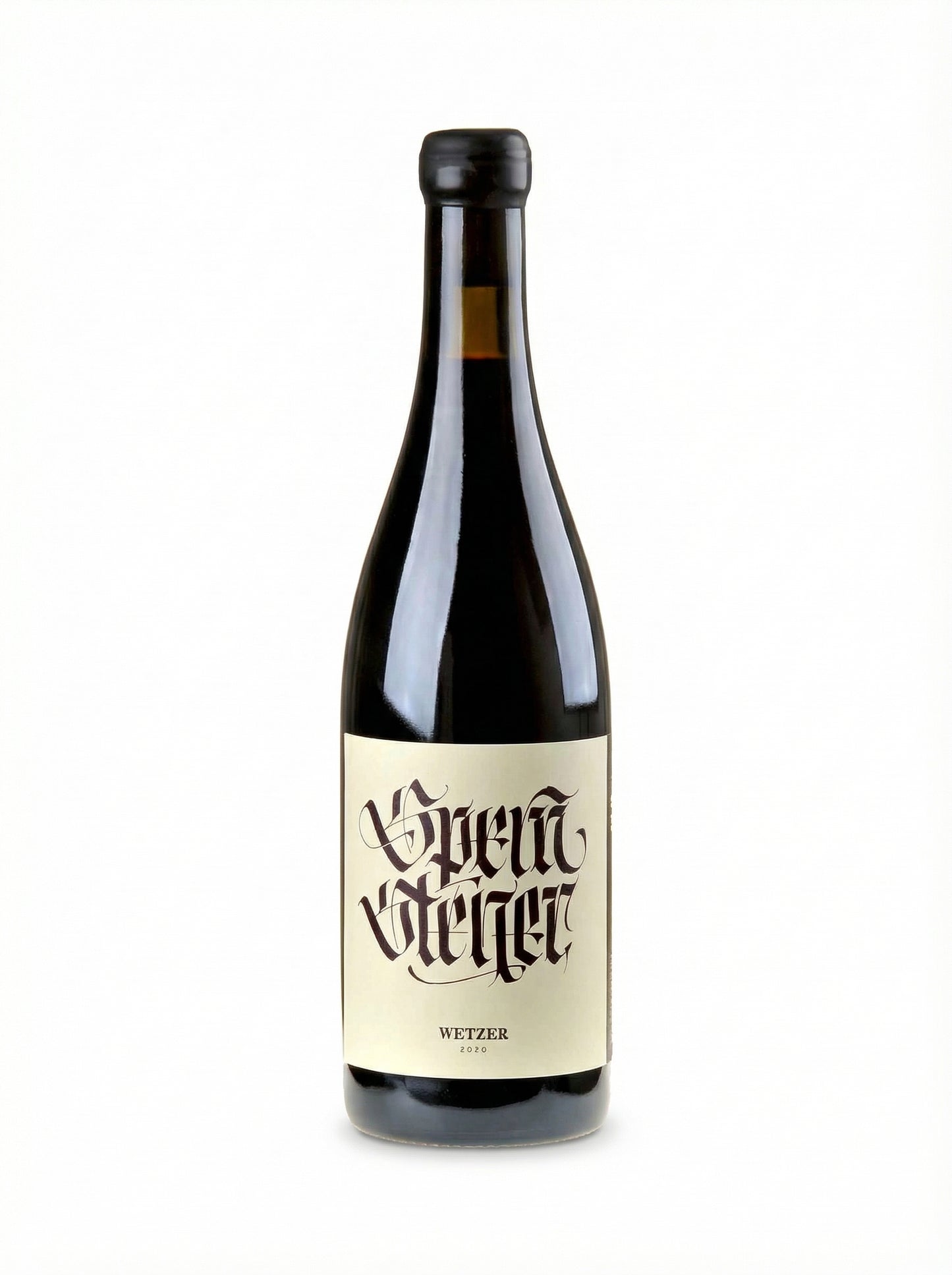2020 Peter Wetzer Kékfrankos Spern Steiner
Kékfrankos (known in Germany as Blaufränkisch or Lemberger) is cultivated in a 60+ year-old vineyard in Sopron, Hungary—an estate regarded as a grand cru since the 15th century. The vineyard’s vines thrive on nutrient-poor, kargen Schieferböden enriched with Quarzit, mica schist, gneiss, and quartz. These extreme conditions, characterized by high soil heat retention and a long growing season, promote optimal ripeness despite low yields. The vineyard is managed biologically through selective hand harvesting, and the grapes are typically destemmed with a small percentage of stems retained to introduce additional aromatics and a hint of bitterness. Following a three-week skin contact in open-top vats (or open bottich enclosures) that encourages spontaneous fermentation, the must is pressed and transferred to neutral wooden barrels (ranging from 300 to 1,000 liters, with many wines aged in Hungarian 500L barrels). Minimal sulfur additions are applied prior to bottling, and the wine’s release is further delayed to allow tannins to settle naturally. The entire process adheres to natural and vegan practices without additional enological interventions.
Regular price
$54.00
Regular price
Sale price
$54.00
Specs
Farming
Harvest
Grapes are selectively hand-harvested and destemmed, with slight stem inclusion applied in certain cases.
Fermentation
Fermentation is conducted in open vessels—ranging from open-top wood vats to Hungarian 500L containers—with maceration lasting from 18–22 days up to 3 weeks. Techniques include spontaneous fermentation in open bottich settings, manual punching down during skin contact, and limited stem inclusion to enhance aromatics and bitterness. After prolonged skin contact and tannin settling, the mash is pressed into neutral or used barrels.
Aging
The wine undergoes barrel aging in a variety of wooden vessels—large casks, Hungarian 500L barrels, or 300–1000L used barrels with lees contact—sometimes extending up to 18 months.
Bottling: Final bottling is executed unfined and unfiltered with a modest to moderate addition of sulfur.
Bottling: Final bottling is executed unfined and unfiltered with a modest to moderate addition of sulfur.


